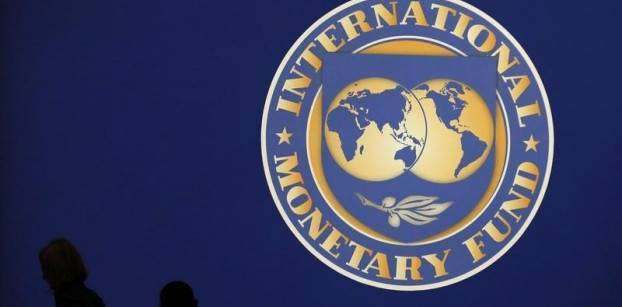IMF projects higher inflation rates, improved growth in Egypt

IMF logo - Reuters
CAIRO, Oct 5 (Aswat Masriya) - The International Monetary Fund (IMF) projected on Tuesday a rise in inflation rates from 10.2 per cent in 2016 to 18.2 per cent in 2017, according to the World Economic Outlook's October report.
The IMF saw real GDP growth reaching 3.8 per cent in 2016, up from its previous projection in April of 3.3 per cent.
The report attributed the slightly more positive projection to recent reforms adopted in the MENA region in general as well as low oil prices.
However, growth remains fragile due to security risks, social tensions and structural impediments, the IMF said.
The IMF projected a steep rise in inflation rates in 2017, compared to an expected inflation rate of 10.2 per cent in 2016, at a time when it had kept its projections below 10 per cent for both years in a previous forecast in April.
Egypt's annual consumer inflation rate jumped to 16.4 percent nationwide in August, according to the official statistics agency.
On Saturday, Egypt's President Abdel Fattah al-Sisi met with central bank governor Tarek Amer and asked him to make sure low-income groups are shielded from the effects of "structural reform measures."
A few hours later, Beltone Financial projected an imminent floating of the Egyptian pound with experts saying the pound's exchange rate would stand between EGP 11.5 and EGP 12.5 per dollar.
Speculation over another devaluation has been growing since Amer told local newspapers in July that fixing the pound at an artificial rate was a grave mistake, saying that this policy doesn’t reflect the true value of the pound against the dollar.
The central bank, however, kept the Egyptian pound steady against the dollar at Tuesday’s weekly auction of foreign currency, confounding expectations of an imminent devaluation.
Meanwhile, the pound has weakened to unprecedented levels on the black market, reaching 14.20-14.25 to the dollar, according to Reuters.
Net foreign reserves have jumped to $19.59 billion at the end of September, their highest in over a year, further intensifying expectations of a looming devaluation.
Emirati investment bank Arqaam Capital expected an "aggressive devaluation" in its September report. The bank saw a managed float rather than a free float happening in the short term, coupled with interest rates hikes to curb dollarisation.
Beltone experts also believed that a managed float of the Egyptian pound followed by an increase in foreign reserves to reach over $30 billion by November would be "optimal" for Egypt in order to secure funding from the IMF.
Egypt secured a preliminary agreement for a $12 billion three-year loan programme from the IMF in August.
Egypt's Deputy Finance Minister told Reuters on Wednesday that the IMF will discuss Egypt’s loan programme at an executive board meeting, not at its annual meeting this week.









facebook comments